TP – Not using textbooks to create end-of-semester and year-end exams is a requirement of the Ministry of Education and Training for the new school year 2024-2025. This move is expected to put an end to copying sample texts and speculating about exam questions.
The problem of model essays, students "copying" the entire lesson from class into the exam and still getting high scores is considered a weakness of the 2006 general education program that has existed for decades. Since the application of the new general education program with a program, many textbooks, teaching methods and assessment of the Literature subject have gradually changed towards using extra-book materials to assess students' ability to analyze and appreciate literature.
 |
From the next school year, students will take the Literature test with materials outside of the textbook. |
In the 2024-2025 school year guidelines, the Ministry of Education and Training requires schools not to use textbooks for periodic testing. And of course, the 10th grade entrance exams and high school graduation exams will also follow that direction.
Ms. Le Thi Lan, a Literature teacher at Phuc Xa Secondary School, Ba Dinh District ( Hanoi ), believes that it is necessary to innovate the way of teaching and assessing the subject. In fact, since the application of the new program to the next school year, which is the 4th year, teachers have gradually shifted to not using materials in textbooks to create test questions. Even the school is teaching this set of books but does not use materials in the other two sets of books so that students can approach a new text. Such a test method requires teachers to also innovate the way of teaching, that is, equipping students with test-taking skills and genre recognition.
“Teaching literature must focus on the output, students must have good reading comprehension ability, good literary appreciation ability. And with the new testing method, teachers must also accept and score students' right and wrong views when they have strong arguments, perspectives and evidence to encourage creativity instead of sticking to the ba-rem to score.”
Dr. Hoang Ngoc Vinh
According to Ms. Lan, this method is favorable for the group of students who are average or above because they only need to have the ability to read and understand, a good knowledge base, and a mindset to grasp the method and learn more easily. On the contrary, for the group of students below average, who have long depended on sample texts and readings from teachers to copy, they will struggle and have much more difficulty. Students entering grade 6 this year have 5 years of primary school studying the old program and need time to get used to it to avoid confusion.
Depends on the teacher
The success of the innovation in teaching Literature depends largely on teachers. Some teachers expressed concern that recently there has been a situation where teachers "prescribe questions" or "prepare questions" for students. For example, before the test, teachers give 3-4 excerpts from textbooks for students to refer to and will give questions that match one of those questions. This is said to be due to the pressure on teachers about scores and final and yearly achievements. Some teachers admitted to being confused when choosing and quoting materials to create appropriate test questions. In fact, some schools give year-end test questions that are 3 pages long, causing students to complain because they spend a lot of time reading the questions.
A Literature teacher at Lao Cai High School for the Gifted, Lao Cai province analyzed that not using textbook materials for testing has advantages but also disadvantages and limitations. The advantage is that it certainly promotes students' intelligence and literary creativity. They no longer have to learn mechanically, following model texts, which has been a problem that has existed for many years. However, when students realize that studying lessons in textbooks but not testing or evaluating leads to the phenomenon of "riding a horse to see flowers", learning superficially, inattentive, learning first and forgetting later. “Previously, in the old curriculum, there were only a few works, so teachers taught carefully, analyzing each passage in depth from content to art and meaning. Learning by digging deep, students pondered, searched for related lessons to absorb, absorb and feel the work. This would not be possible with a completely new excerpt or work, because students did not have time to feel deeply, even students with poor reading comprehension skills could misunderstand the content and go off topic,” according to this teacher.
Dr. Hoang Ngoc Vinh, former Director of the Department of Vocational Education (Ministry of Education and Training), said that for a long time, university-graduated Literature teachers often taught students in a traditional way, meaning that they wanted all students to love and have the same perspective on literary works as themselves. What the teacher said, the students understood according to a model. That "repetition" made it impossible for students after many years of studying to write a good paragraph. Children who wrote according to their own thoughts freely and creatively could be considered off-topic... and lost points. From there, model essays became "valuable" and students did not need to think when studying literature. For many years, Literature exams have been poor, with only a few works in textbooks, and every year students guessed correctly," Dr. Vinh said.





![[Photo] Binh Trieu 1 Bridge has been completed, raised by 1.1m, and will open to traffic at the end of November.](https://vphoto.vietnam.vn/thumb/1200x675/vietnam/resource/IMAGE/2025/10/2/a6549e2a3b5848a1ba76a1ded6141fae)


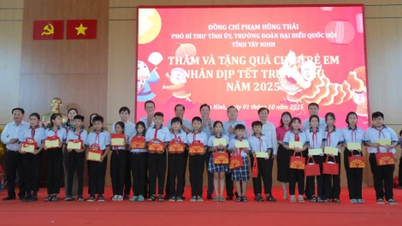

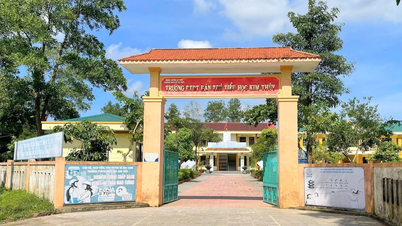



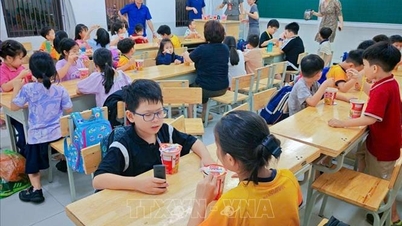



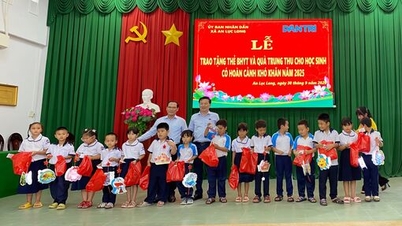





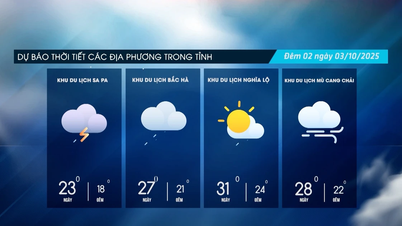

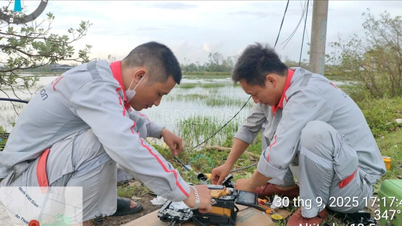




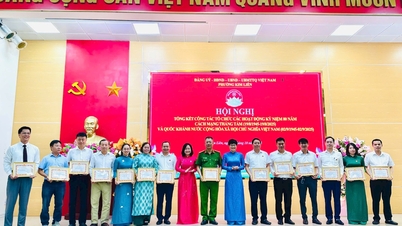
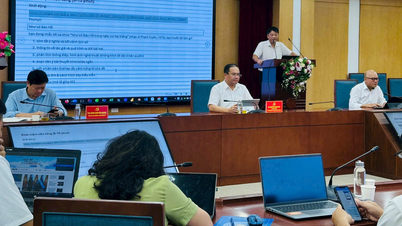
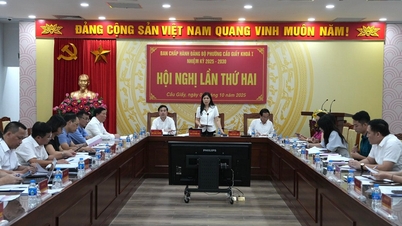


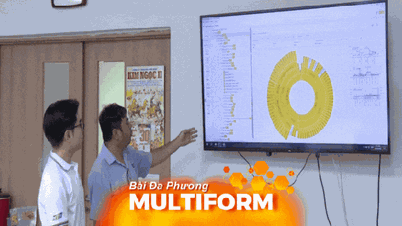















































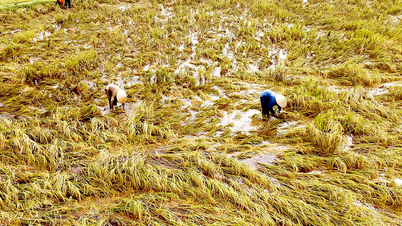


















Comment (0)